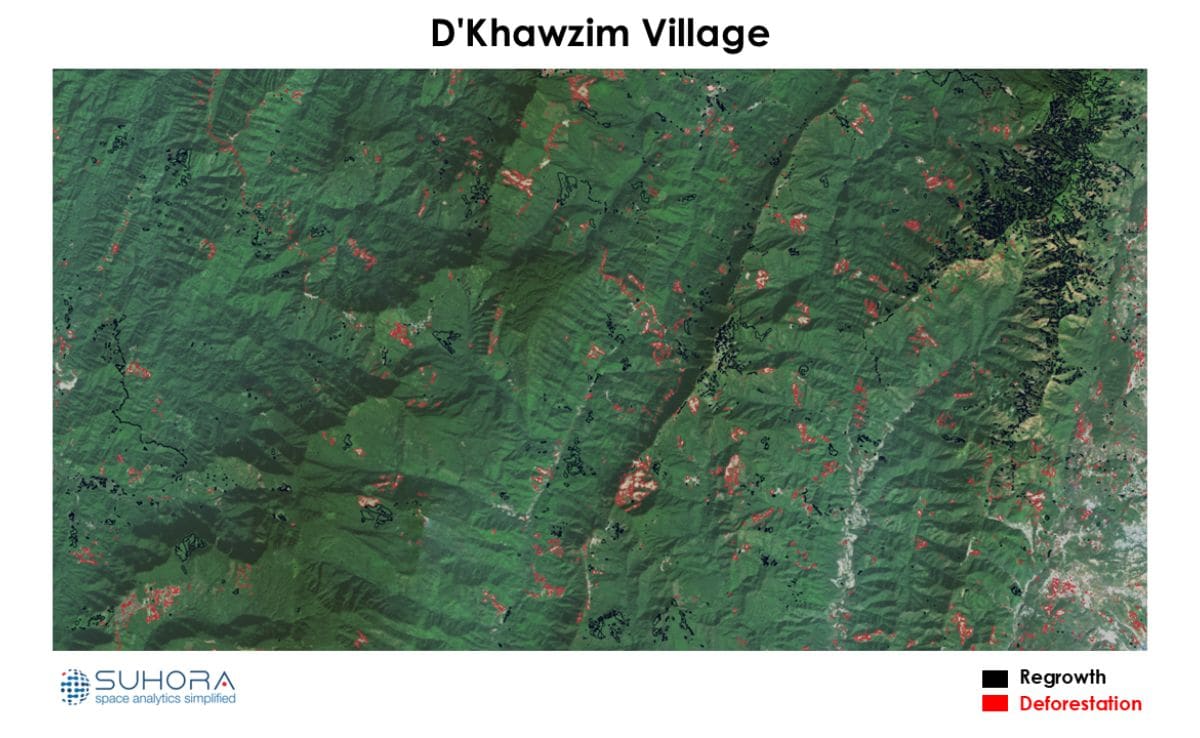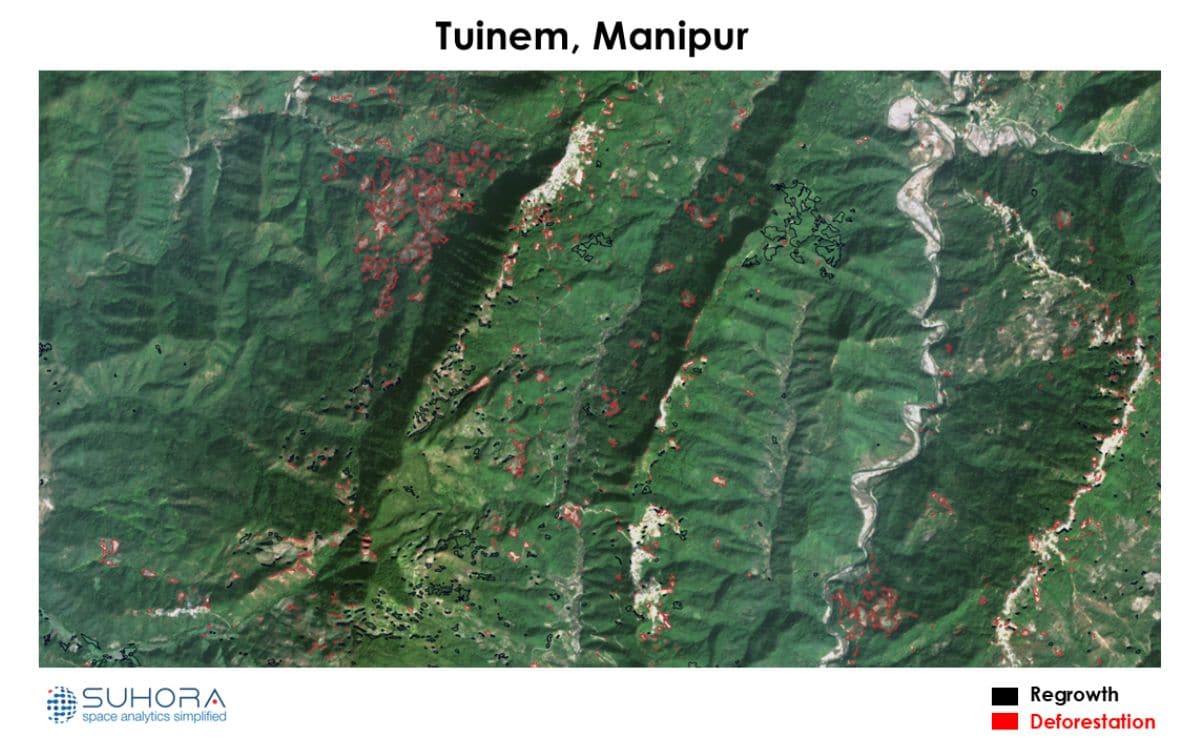
Manipur lost a staggering 52,000 acres of forest area in just four years between 2021 and 2025, a study by space analytics firm Suhora said.
Using high-resolution satellite data and advanced geospatial intelligence, the study mapped critical shifts in land cover in Manipur, it said in the study titled 'Manipur Deforestation: A Closer Look at Alarming Trends and Emerging Hope'.
"The findings are sobering: an estimated 21,100 hectares [52,000 acres] of forest were lost during this four-year span... due to a combination of anthropogenic and environmental factors," the study said.
The findings also point to a hopeful sign of recovery with an estimated 13,000 hectares [32,000 acres] of land seeing vegetation regrowth, suggesting that with the right strategies, parts of Manipur's forests may still recover, it said.

See high-resolution here
Apart from looking at changes in Manipur's forest areas, the Suhora study cited some reasons behind the loss of forest areas in the state bordering Myanmar. They include the proliferation of poppy cultivation, especially in remote hill regions, which has led to widespread forest clearing.

The areas in Manipur where deforestation and regrowth were seen. See high resolution here
However, NDTV reported in April 2024 that illegal opium poppy cultivation area in Manipur fell 60 per cent in the three-year crop cycle period between 2021 and 2024, according to a satellite imagery-based report by the Manipur Remote Sensing Applications Centre (MARSAC).
No scientific study has been done, either by a government or a private agency, on the link between deforestation and illegal opium poppy cultivation, a senior officer in the state forest department told NDTV, adding all that exists on this matter is anecdotal.
The Suhora study appears to agree with this assessment, as it said the drivers behind Manipur's forest loss are multifaceted and deeply rooted in both traditional and modern practices.

See high-resolution here
Traditional shifting cultivation (jhum), which was once ecologically sustainable, has increasingly become detrimental due to shortened fallow cycles, which no longer allow the land enough time to regenerate, the study said.
Illegal logging and unsustainable fuelwood collection; infrastructure development which not only causes direct deforestation but also increases the risk of landslides, and the effects of climate change such as rising temperatures, shifting rainfall patterns, and increased susceptibility to wildfires and pest outbreaks have made forest ecosystems in Manipur even more vulnerable, the study said.
Track Latest News Live on NDTV.com and get news updates from India and around the world

